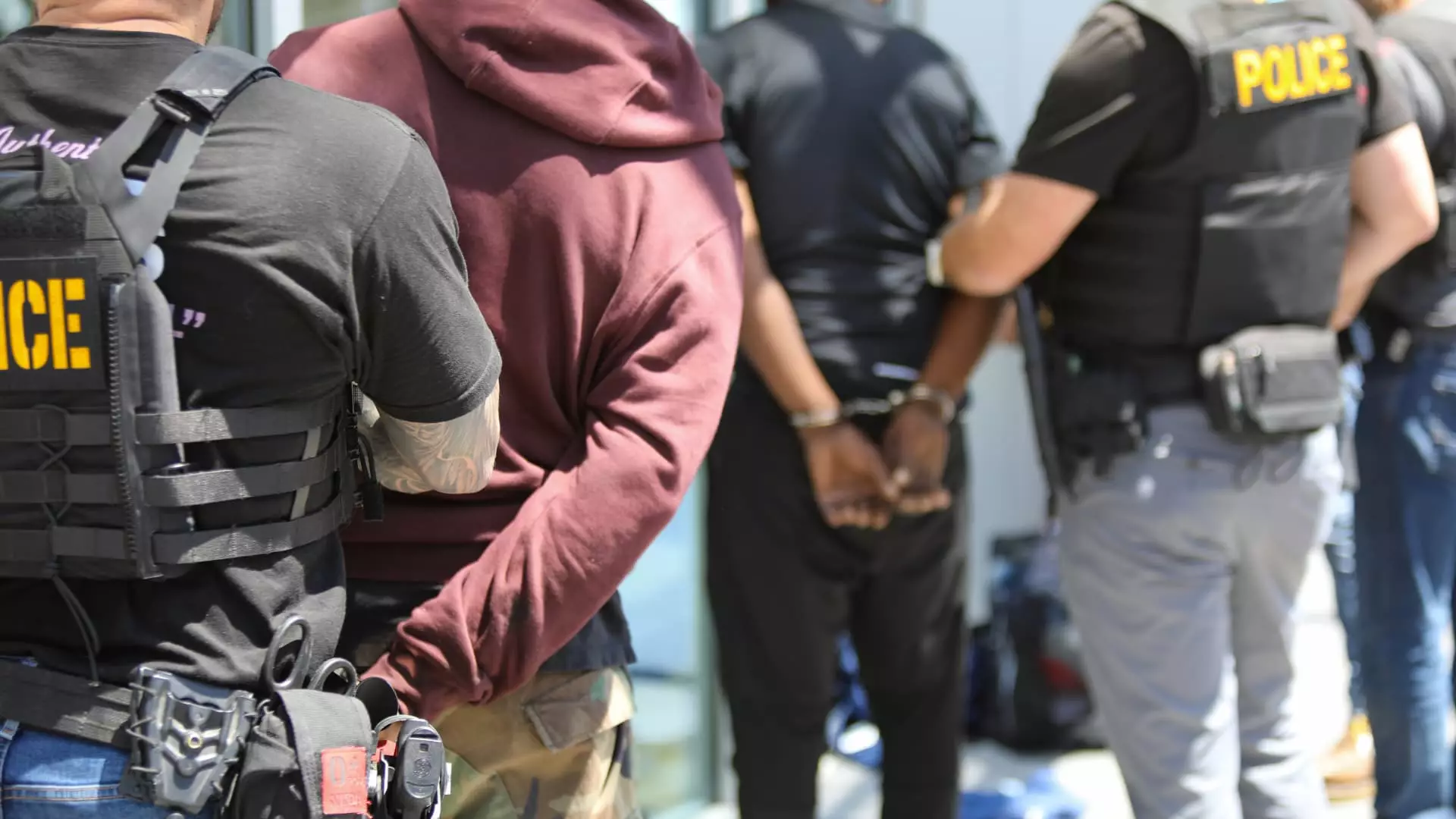In a significant leap toward curbing the rampant epidemic of organized retail crime, law enforcement agencies across 28 states arrested over 600 individuals in a historic crackdown. This unprecedented operation, spearheaded by Cook County’s regional organized crime task force in Illinois, represents an innovative and collaborative approach to addressing a crisis that has been simmering beneath the surface of our economic fabric. With retailers drawing attention to the staggering rise in theft rates, which have surged by 93% since 2019, the question arises — can we finally turn the tide?
The Nature of Organized Retail Crime
Organized retail crime (ORC) is no longer just shoplifting; it has evolved into a complex network of criminals orchestrating theft operations to turn stolen merchandise into quick cash. Unlike traditional shoplifting, ORC involves groups that meticulously plan their heists, sometimes employing sophisticated tactics akin to corporate espionage. This orchestration has made it increasingly challenging for law enforcement to respond adequately. The staggering statistics lay bare a reality that cannot be ignored: a 90% increase in associated dollar losses reported by retailers, a clear sign that retail theft is neither a minor inconvenience nor a benign crime.
The argument for increased prosecution is backed by hard data and anecdotal experiences from business owners who are often left holding the bag. The National Retail Federation’s findings illuminate the dire state of retail security, prompting a united front among retailers to combat these criminal enterprises. In this context, the Cook County State’s Attorney Eileen O’Neill Burke’s tough approach—reducing the felony threshold for retail theft to items valued above $300—emerges as a necessary and prudent response to this escalating crisis.
A Paradigm Shift in Law Enforcement
What makes this recent operation particularly noteworthy is the collaboration between law enforcement and various stakeholders within the retail industry. This model of cooperation is crucial; it disrupts the silos that often characterize crime-fighting initiatives. Major retailers such as Home Depot and Ulta Beauty not only supported the initiative but actively participated, providing intelligence to law enforcement that led to significant breakthroughs. Their involvement underscores a pivotal realization: it is not solely the responsibility of the police to combat crime—businesses have a crucial role to play too.
Cook County Sheriff Tom Dart’s assertion that focused attention on crime can create a ripple effect of deterrence is not merely hopeful rhetoric. It resonates with the principle that visible law enforcement leads to reduced crime rates. When criminals see systematic crackdowns being enacted, it sends a clear message: the consequences are real, and they’re coming for you. This cooperative model embodies a proactive rather than reactive approach, which prioritizes intelligence-sharing and strategizing ways to dismantle organized networks.
Legislative Advocacy and Future Implications
Law enforcement officials and prosecutors are not operating in a vacuum. The call for stronger laws against retail theft is echoed throughout the industry. Collaborations between law enforcement and retail loss prevention teams suggest a future trajectory toward legislative reform. Advocates push for policy adjustments to ensure that penalties reflect the seriousness of the offense. With major retailers standing behind these efforts, there is a robust momentum building that legislators cannot ignore.
However, while the initial crackdown has been successful, the challenge will be sustaining momentum. Burgeoning criminal networks learn to adapt quickly, and without a continued commitment to these collaborative efforts, we risk reverting to old habits of leniency that allow organized crime to flourish. The real conversation must center on how to maintain pressure and build a consistent framework for tackling ORC year after year.
In an era where consumer trust is fragile, the retail sector must take bold steps to reclaim public confidence. The combination of strategic law enforcement initiatives and industry accountability presents an opportunity to redefine our approach to retail security. What remains to be seen is how diligently we can pursue these strategies to dismantle the coordinated criminal enterprises that diminish the shopping experience and economic security for all.


Leave a Reply